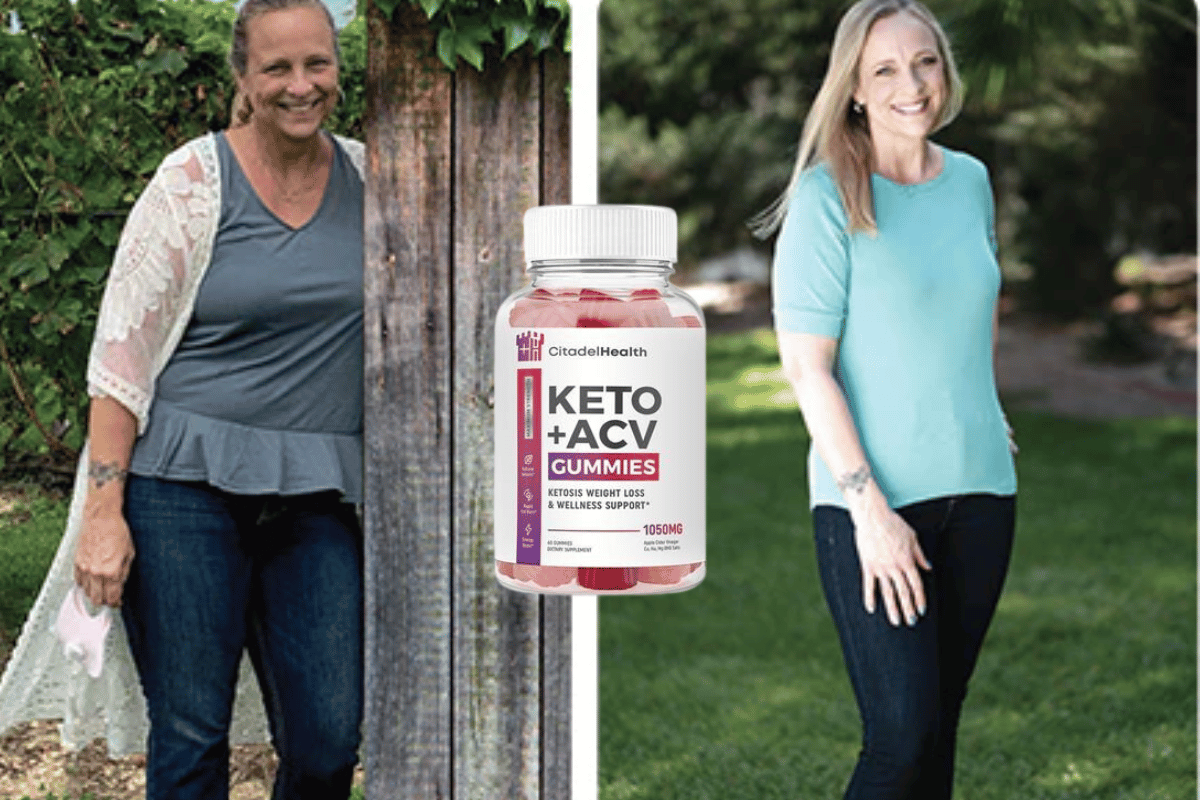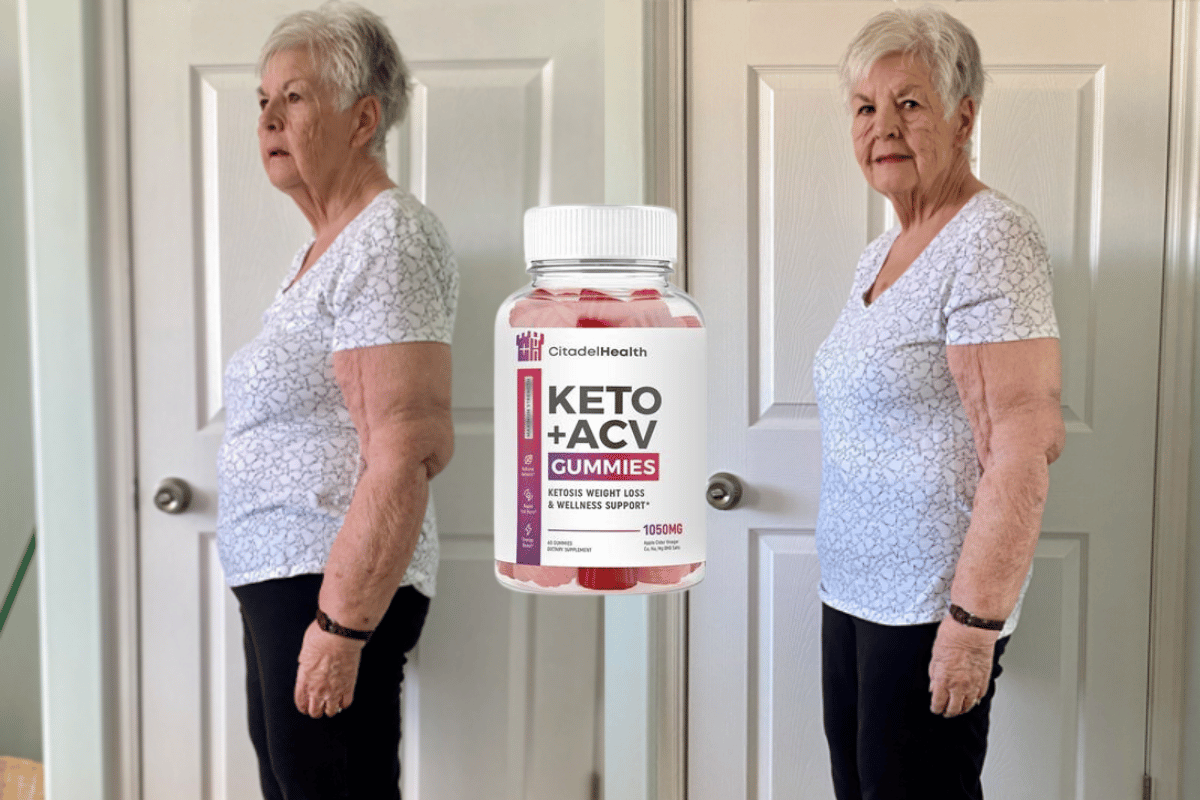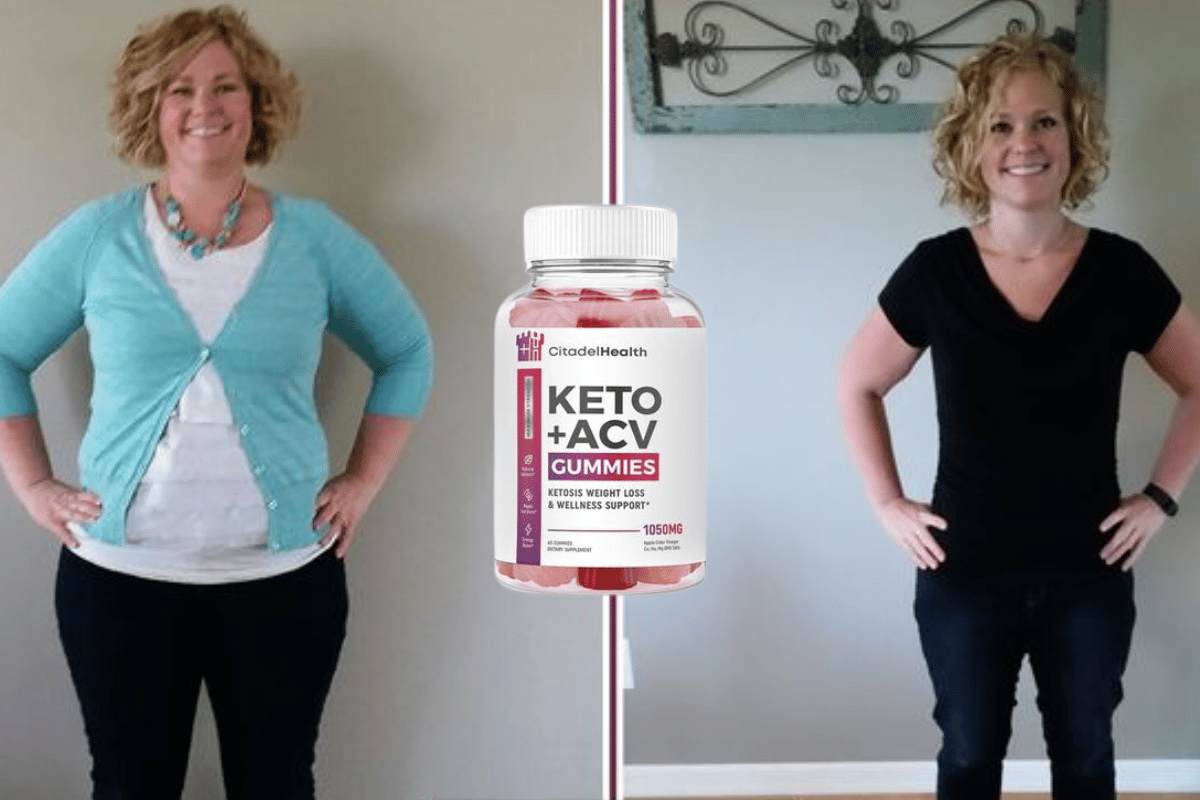In recent years, the health and wellness industry has seen a significant surge in the popularity of weight loss supplements. Among these, keto+acv gummies have emerged as a notable trend, particularly in 2024. These gummies are marketed with the promise of aiding weight loss by combining the benefits of the ketogenic diet and apple cider vinegar (ACV). However, alongside their rising popularity, there have been increasing scam alerts, especially targeting the senior community.
The allure of keto+acv gummies is based on the concept of easy and convenient weight loss. The ketogenic diet, known for its low-carb, high-fat approach, forces the body to burn fats rather than carbohydrates, leading to weight loss. Meanwhile, apple cider vinegar is claimed to offer various health benefits, including appetite suppression and metabolism enhancement. When these two are combined in a gummy form, they promise a simplified solution to weight loss without the need for strict dieting or intense exercise.
However, as 2024 unfolds, numerous reports and scam alerts have surfaced, putting the legitimacy of these gummies under scrutiny. Many seniors, attracted by the prospect of an easy solution to weight loss, have been particularly vulnerable to these scams. This has raised concerns about the authenticity of these products and the potential exploitation of senior citizens looking for safe and effective ways to manage their weight.
This introductory section aims to shed light on the keto+acv gummies phenomenon, exploring the product’s promises, its rising popularity, and the associated scam alerts. It serves as the foundation for a deeper investigation into the reality behind these gummies and their impact on the senior community.

Unpacking the Keto+ACV Gummies Scam
The keto+acv gummies scam is a growing concern in 2024, characterized by false claims and red flags that consumers, especially seniors, should be aware of. This part of the article delves into identifying these deceptive practices and distinguishing between real and fake products.
Firstly, identifying the red flags associated with these scams is crucial. Common signs include unrealistic weight loss promises, such as losing a significant amount of weight in a very short period without any lifestyle changes. Additionally, these scams often use aggressive marketing tactics and fake endorsements from celebrities or reputed health experts, which can be misleading.
Understanding the difference between real and fake keto+acv gummies is equally important. Genuine products will have transparent ingredient lists, proper certification, and realistic health claims. They are usually sold by reputable vendors and have legitimate customer reviews. In contrast, scam products often lack these elements and may have undisclosed ingredients or no evidence of any health benefits.
Furthermore, these scams exploit the lack of knowledge and the desperate need for easy weight loss solutions among consumers, particularly in the senior community. This demographic is often less familiar with online shopping scams and more trusting of health claims, making them prime targets for these fraudulent schemes.
The rise of the keto+acv gummies scam signifies a critical issue in the health supplement market, emphasizing the need for consumers to be vigilant and informed. The next sections will explore the impact of these scams on the senior community, investigate the science behind these gummies, and discuss the legal actions taken to protect consumers.

Investigating the Science (or Lack Thereof) Behind Keto+ACV Gummies
In this section, we delve into the scientific basis, or rather the lack thereof, of keto+acv gummies, breaking down their ingredient list and comparing the claims made against actual scientific evidence.
Firstly, let’s explore the ingredients typically found in these gummies. Keto+acv gummies are marketed as containing components that supposedly support the ketogenic diet and the benefits of apple cider vinegar. The ketogenic component often includes beta-hydroxybutyrate (BHB), which is claimed to induce ketosis, a state where the body burns fat for energy. Meanwhile, apple cider vinegar is touted for its supposed ability to enhance metabolism and reduce appetite. However, the concentration of these ingredients in gummy form is often too low to be effective.
When comparing these claims to scientific reality, several inconsistencies emerge. For one, achieving ketosis through supplements is scientifically dubious, as ketosis is typically induced through dietary changes. Moreover, while there is some evidence supporting modest health benefits of apple cider vinegar, these are not to the extent often claimed by these products. Furthermore, the combination of these ingredients in a gummy format has not been extensively studied, casting doubt on the efficacy of these products.
The lack of rigorous scientific backing for keto+acv gummies raises serious concerns. Many of these products do not undergo the stringent testing and research that legitimate health supplements are subjected to. This lack of scientific validation is a major red flag and contributes significantly to the classification of these products as scams.
The scientific investigation into keto+acv gummies reveals a significant gap between the claims made by manufacturers and the actual effectiveness of the products. As we continue to explore the legal and consumer protection actions taken against these scams, it’s crucial for consumers to be informed and skeptical of such miraculous health claims.
Legal and Consumer Protection Actions
Recent legal actions and consumer protection responses have emerged as a critical countermeasure against the keto+acv gummies scam. This section highlights the significant legal proceedings and the efforts of consumer advocacy groups in addressing this fraudulent practice.
Lawsuits have become increasingly common against companies producing these gummies. Plaintiffs in these cases typically argue that the products are falsely advertised, lacking the promised health benefits, and sometimes even causing harm due to undisclosed ingredients. These lawsuits aim to hold manufacturers accountable for misleading claims and seek financial redress for consumers who were duped.
In addition to legal action, consumer complaints have played a pivotal role in highlighting the issue. These complaints often detail personal experiences of ineffectiveness, side effects, or financial losses, serving as a warning to potential buyers. They are crucial for alerting consumer protection agencies and prompting investigations.
Authorities, including the Federal Trade Commission (FTC) and Food and Drug Administration (FDA) in the United States, have begun to respond more actively. Their actions include issuing warnings to consumers about the risks associated with these products, cracking down on false advertising, and ensuring that manufacturers comply with safety standards and truthful marketing practices.
The combined efforts of legal actions and consumer protection responses underscore the seriousness of the keto+acv gummies scam. They also reflect a growing awareness and proactive stance in protecting consumers, especially vulnerable groups like seniors, from deceptive health product scams. The following sections will discuss safer alternatives for weight loss and provide tips on how consumers can protect themselves from similar scams in the health and wellness industry.

Alternatives to Keto+ACV Gummies for Weight Loss
In light of the concerns surrounding keto+acv gummies, it’s important to explore safe and effective methods for weight loss, especially for seniors. This section highlights alternative approaches endorsed by experts and supported by scientific evidence.
One of the most recommended methods for healthy weight loss is a balanced diet combined with regular exercise. Nutritionists often advocate for diets rich in fruits, vegetables, lean proteins, and whole grains, while minimizing processed foods and sugars. Regular physical activity, tailored to an individual’s ability and health status, is also crucial. Activities like walking, swimming, or gentle yoga can be particularly beneficial for seniors.
Another effective approach is seeking guidance from healthcare professionals. Dietitians and doctors can provide personalized advice based on an individual’s health needs and medical history. They can help create a sustainable weight loss plan, considering factors like metabolism, existing medical conditions, and nutritional requirements.
There are also clinically approved weight loss supplements and medications, but these should only be used under medical supervision. Such options are tested for safety and efficacy, unlike many over-the-counter supplements like keto+acv gummies.
Mental health support is another aspect often overlooked in weight loss journeys. Stress, anxiety, and other emotional factors can significantly impact eating habits and weight. Counseling or therapy can be beneficial in addressing these issues.
Lastly, support groups and community resources can provide motivation and encouragement, which are essential for long-term success in weight loss.
Alternatives to keto+acv gummies for weight loss emphasize a holistic approach, combining diet, exercise, medical advice, and mental health support. These methods are not only safer but also more likely to result in sustainable and healthy weight loss, particularly for seniors. The next sections will offer tips on avoiding scams in the health and wellness industry and answer frequently asked questions about the keto+acv gummies scam.
Tips to Avoid Scams in the Health and Wellness Industry
Navigating the health and wellness industry can be challenging, especially with the prevalence of scams like the keto+acv gummies. This section provides essential tips to help consumers, particularly seniors, educate themselves and avoid falling victim to such fraudulent schemes.
First and foremost, it’s crucial to do thorough research before purchasing any health product. This includes reading up on the ingredients, understanding their effects, and checking for scientific backing. Websites of legitimate health authorities or peer-reviewed journals are good sources for reliable information.
Being skeptical of exaggerated claims is another important precaution. If a product promises miraculous results, like rapid weight loss without diet or exercise, it’s likely too good to be true. Authentic health products typically offer moderate results and never guarantee overnight success.
Checking for proper certification and approval by relevant health authorities can also help identify legitimate products. In the United States, for example, looking for FDA approval is a good practice. However, remember that not all supplements require FDA approval, so it’s important to consult healthcare professionals as well.
Reading reviews and seeking recommendations can offer valuable insights. However, be wary of fake reviews, which are common in online marketplaces. Seek out reviews from verified purchasers or independent review sites.
Knowing the return policy and warranty of products is also important. Reputable companies usually offer transparent return policies and customer satisfaction guarantees.
In case of doubt, always consult a healthcare professional. Doctors, dietitians, and pharmacists can provide tailored advice and help decipher the legitimacy of a product.
Finally, staying informed about common scams in the industry is key. Following news from consumer protection agencies like the FTC can help you stay updated on recent frauds and alerts.
By following these steps, consumers can significantly reduce their risk of falling prey to scams in the health and wellness industry. Educating oneself and being vigilant are the best defenses against fraudulent products and schemes. The next section, the FAQ, will further address specific queries related to the keto+acv gummies scam.
FAQs (Frequently Asked Questions) Section: Unraveling the Truth About Keto+ACV Gummies Scams
In this final section, we address some of the most frequently asked questions about the keto+acv gummies scam, providing clear and concise answers to help seniors and others stay informed and protected.
Q1: How Can Seniors Identify a Keto+ACV Gummies Scam? A: Seniors can identify a scam by looking for unrealistic weight loss claims, lack of detailed ingredient information, absence of scientific evidence, and overly aggressive marketing tactics. Additionally, be cautious of products that use celebrity endorsements without verifiable proof or those that offer “free trials” but require credit card details.
Q2: Key Indicators of Fraudulent Products A: Key indicators include lack of transparency about ingredients, no verifiable customer reviews, no approval or recognition from reputable health authorities, and contradictory or unclear information on the product’s website or packaging.
Q3: What Should Seniors Do if They’ve Fallen Victim to a Scam? A: If seniors believe they’ve fallen victim to a scam, they should immediately stop using the product and contact their bank or credit card company to dispute charges. It’s also important to report the scam to consumer protection agencies, such as the FTC, to help prevent others from being scammed.
Q4: Steps for Reporting and Recovering Losses A: Steps include documenting all communications and transactions related to the scam, filing a complaint with consumer protection agencies, and considering legal advice for possible reimbursement. Also, sharing the experience in senior communities can help raise awareness.
Q5: Are There Any Legitimate Keto+ACV Gummies? A: While there may be legitimate products, it’s crucial to approach them with skepticism. Verify the authenticity through ingredient lists, customer reviews, and scientific evidence. Consult healthcare professionals before trying any new supplement.
Q6: What Are the Risks of Using Scam Keto+ACV Gummies? A: Risks include potential health hazards due to unknown or harmful ingredients, financial loss, and the emotional impact of falling victim to a scam. There’s also the risk of these products interacting negatively with other medications.
Q7: How Can Seniors Safely Achieve Weight Loss? A: Safe weight loss for seniors can be achieved through a balanced diet, regular exercise, and consulting healthcare providers for personalized advice. Avoiding quick-fix solutions and focusing on gradual, sustainable changes is key.

